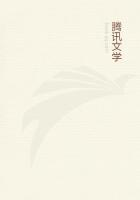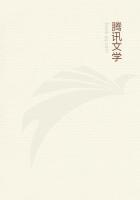About half-past nine in the morning of the 19th, the MARS, being the nearest to the fleet of the ships which formed the line of communication with the frigates inshore, repeated the signal that the enemy were coming out of port. The wind was at this time very light, with partial breezes, mostly from the S.S.W. Nelson ordered the signal to be made for a chase in the south-east quarter. About two, the repeating ships announced that the enemy were at sea. All night the British fleet continued under all sail, steering to the south-east. At daybreak they were in the entrance of the Straits, but the enemy were not in sight.
About seven one of the frigates made signal that the enemy were bearing north. Upon this the VICTORY hove to; and shortly afterwards Nelson made sail again to the northward. In the afternoon-the wind blew fresh from the south-west, and the English began to fear that the foe might be forced to return to port. A little before sunset, however, Blackwood, in the EURYALUS, telegraphed that they appeared determined to go to the westward, "And that," said the admiral in his diary, "they shall not do, if it is in the power of Nelson and Bronte to prevent them." Nelson had signified to Blackwood that he depended upon him to keep sight of the enemy. They were observed so well that all their motions were made known to him; and as they wore twice, he inferred that they were aiming to keep the port of Cadiz open, and would retreat there as soon as they saw the British fleet; for this reason he was very careful not to approach near enough to be seen by them during the night. At daybreak the combined fleets were distinctly seen from the VICTORY's deck, formed in a close line of battle ahead, on the starboard tack, about twelve miles to leeward, and standing to the south. Our fleet consisted of twenty-seven sail of the line and four frigates; theirs of thirty-three and seven large frigates. Their superiority was greater in size and weight of metal than in numbers. They had four thousand troops on board; and the best riflemen who could be procured, many of them Tyrolese, were dispersed through the ships. Little did the Tyrolese, and little did the Spaniards, at that day, imagine what horrors the wicked tyrant whom they served was preparing for their country.
Soon after daylight Nelson came upon deck. The 21st of October was a festival in his family, because on that day his uncle, Captain Suckling, in the DREADNOUGHT, with two other line-of-battle ships, had beaten off a French squadron of four sail of the line and three frigates. Nelson, with that sort of superstition from which few persons are entirely exempt, had more than once expressed his persuasion that this was to be the day of his battle also; and he was well pleased at seeing his prediction about to be verified. The wind was now from the west, light breezes, with a long heavy swell. Signal was made to bear down upon the enemy in two lines; and the fleet set all sail. Collingwood, in the ROYAL SOVEREIGN, led the leeline of thirteen ships; the VICTORY led the weather line of fourteen. Having seen that all was as it should be, Nelson retired to his cabin, and wrote the following prayer:--"May the great GOD whom I worship, grant to my country, and for the benefit of Europe in general, a great and glorious victory, and may no misconduct in any one tarnish it; and may humanity after victory be the predominant feature in the British fleet! For myself individually, Icommit my life to Him that made me; and may His blessing alight on my endeavours for serving my country faithfully! To Him I resign myself, and the just cause which is entrusted to me to defend. Amen! Amen!
Amen!"
Having thus discharged his devotional duties, he annexed, in the same diary, the following remarkable writing:---OCTOBER 21, 1805.--. THEN IN SIGHT OF THE COMBINED FLEETS OF FRANCEAND SPAIN, DISTANT ABOUT TEN MILES.
"Whereas the eminent services of Emma Hamilton, widow of the Right Hon. Sir W. Hamilton, have been of the very greatest service to my king and country, to my knowledge, without ever receiving any reward from either our king or country.
1. That she obtained the King of Spain's letter, in 1796, to his brother, the King of Naples, acquainting him of his intention to declare war against England from which letter the ministry sent out orders to the then Sir John Jervis to strike a stroke, if opportunity offered, against either the arsenals of Spain or her fleets. That neither of these was done is not the fault of Lady Hamilton; the opportunity might have been offered.
2. The British fleet under my command could never have returned the second time to Egypt, had not Lady Hamilton's influence with the Queen of Naples caused letters to be wrote to the governor of Syracuse that he was to encourage the fleet's being supplied with everything, should they put into any port in Sicily. We put into Syracuse, and received every supply; went to Egypt and destroyed the French fleet.
"Could I have rewarded these services, I would not now call upon my country; but as that has not been in my power, I leave Emma Lady Hamilton therefore a legacy to my king and country, that they will give her an ample provision to maintain her rank in life.
"I also leave to the beneficence of my country my adopted daughter, Horatio Nelson Thomson; and I desire she will use in future the name of Nelson only.
"These are the only favours I ask of my king and country, at this moment, when I am going to fight their battle. May God bless my king and country, and all those I hold dear! My relations it is needless to mention; they will of course be amply provided for.
"NELSON AND BRONTE.
"WITNESS, ( HENRY BLACKWOOD.
( T.M.HARDY.















